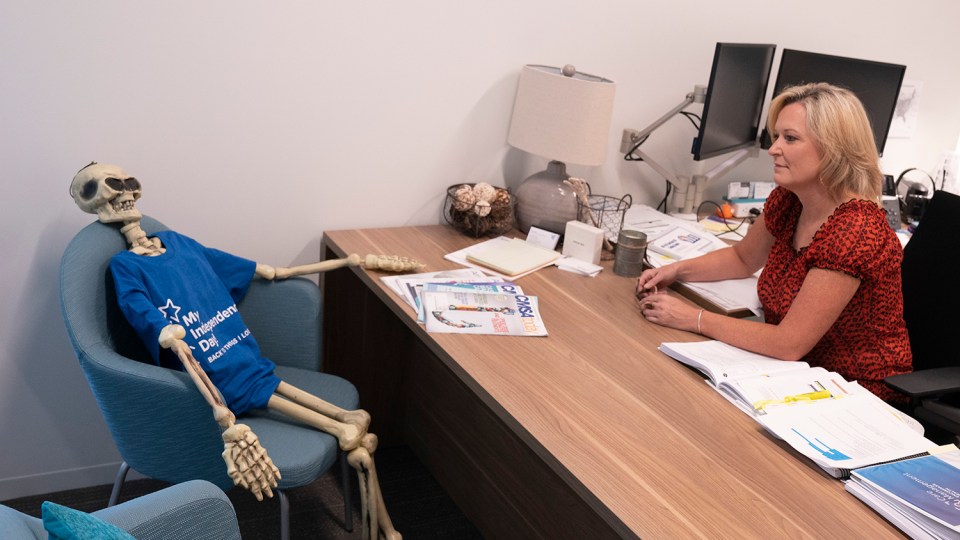When a patient enters a hospital or any other care setting, it’s not just the patient that needs to be cared for; it’s also their family and caregivers. The following are a few ways clinicians can help them.
Emphasize the role family caregivers play on the team.
Family caregivers play an increasing role in carrying out the daily responsibilities of hands-on care for a growing population of persons throughout the nation. Many states now have laws and regulations which require healthcare providers to acknowledge the informal or family caregiver as an important beneficiary of healthcare information which may enable the care receiver to continue to live in a home environment. Providing caregivers with the ability to participate in treatment can help them to build confidence in handling the physical, cognitive and emotional changes their care recipient may experience and set realistic expectations for carryover of that care. By incorporating the family caregiver together during active treatment, it allows healthcare providers to witness the interplay between both parties and encourages outcomes and teamwork too.
Repeat, Review, Repeat
Make sure you have a clear perspective of what the family caregiver understands. Use teach-back as a tool to determine if they have an appropriate understanding of the situation or technique. Never assume someone has understood what was stated or shown in one observation. Remember, as a good healthcare provider you did not learn everything there was to learn in just one day. Spend time with the caregiver to ensure they are capable of performing the expectations of the role for their own safety and the health of their loved one.
Recognize the Longevity of What Lies Ahead
Keep in mind, that the caregiver may be learning skills that they will need for weeks, months, or years ahead. Many facets of caregiving are unknown. While as a healthcare provider you may attempt to demonstrate or anticipate what a caregiver may encounter with their care recipient, the caregiver’s ability or care receiver’s health status may change significantly over time. Take time to review those possible factors and provide ongoing resources where available. As care complexities rise, family caregivers need options to identify strategies to manage their care receiver’s care and avoid injury to themselves or their care receiver.
Reinforce the Need for Support
Evidence reveals the importance of providing the availability of support groups and trainings. Take the time to assist family caregivers in finding that right type of support that will match their needs. Caregivers who have opportunities to participate in social support will likely report greater caregiver satisfaction and reduced burden of care. A strong system of peer support can help both the caregiver and care receiver.
References
Glueckauf, R. L. & Noel, L. T. (2011). Telehealth and family caregiving: Developments in research, education, policy, and practice. In R. W. Toseland (Ed.), Education and support programs for caregivers (pp. 85-105). doi:10.007/978-1-4419-8031-17
James, E., Hughes, M., & Rocco, P. (2016). Addressing the needs of caregivers at risk: A new policy strategy. Retrieved from University of Pittsburgh, Stern Center for Evidence- Based Policy website: http:///www.healthpolicyinstitute.pitt.edu
National Alliance for Caregiving Public Policy Institute. (2015). Caregiving in the U.S.: 2015 report. Retrieved from http://www.caregiving.org
Persson, J., Holmegaard, L., Karlberg, I., Redfors, P., Jood, K., Jern, C., …Forsberg-Warleby, G.(2015). Spouses of stroke survivors report reduced health-related quality of life even in long-term follow-up. Stroke, 46, 2584-2590. doi:101161/STROKEAHA.115009791
The content of this site is for informational purposes only and should not be taken as professional medical advice. Always seek the advice of your physician or other qualified healthcare provider with any questions you may have regarding any medical conditions or treatments.




